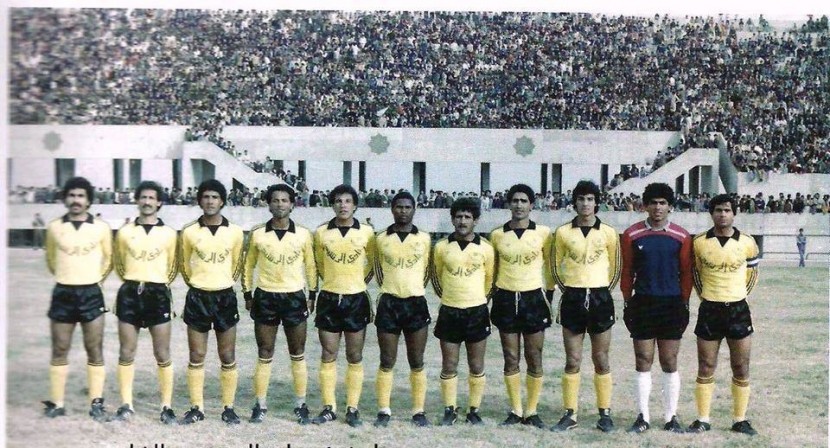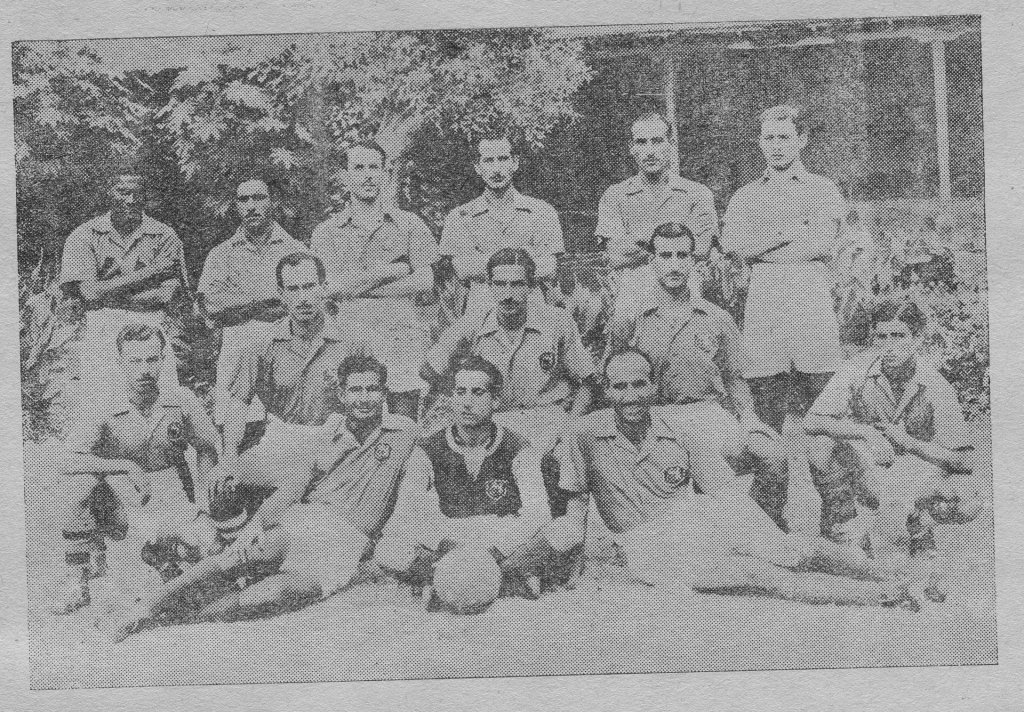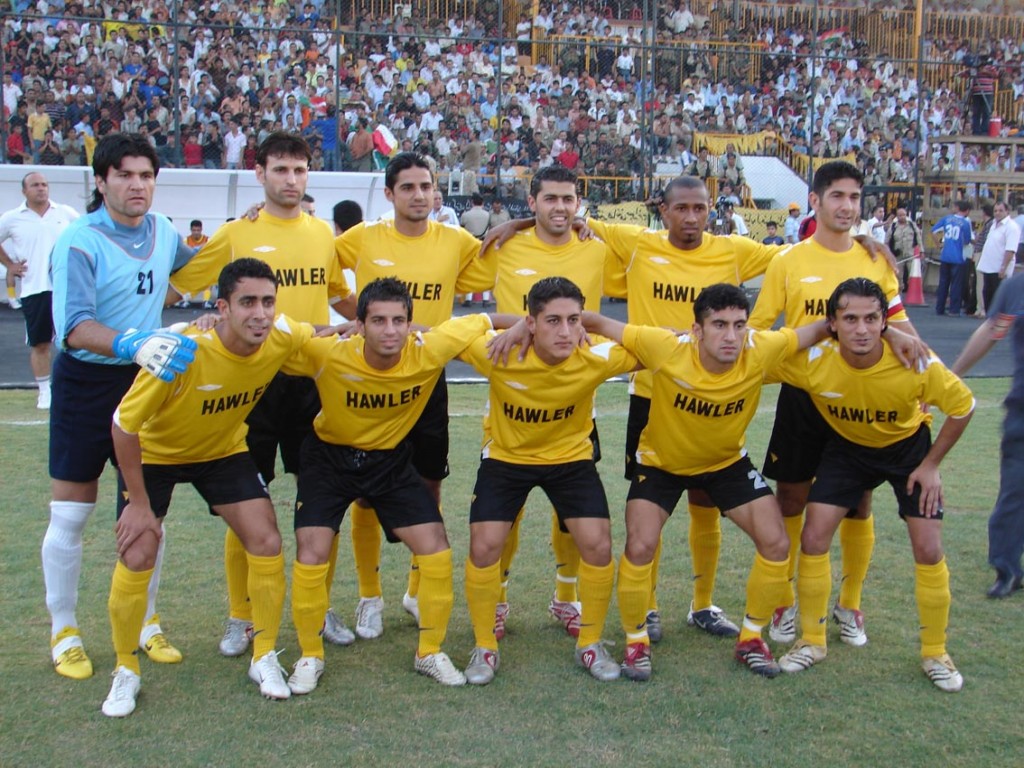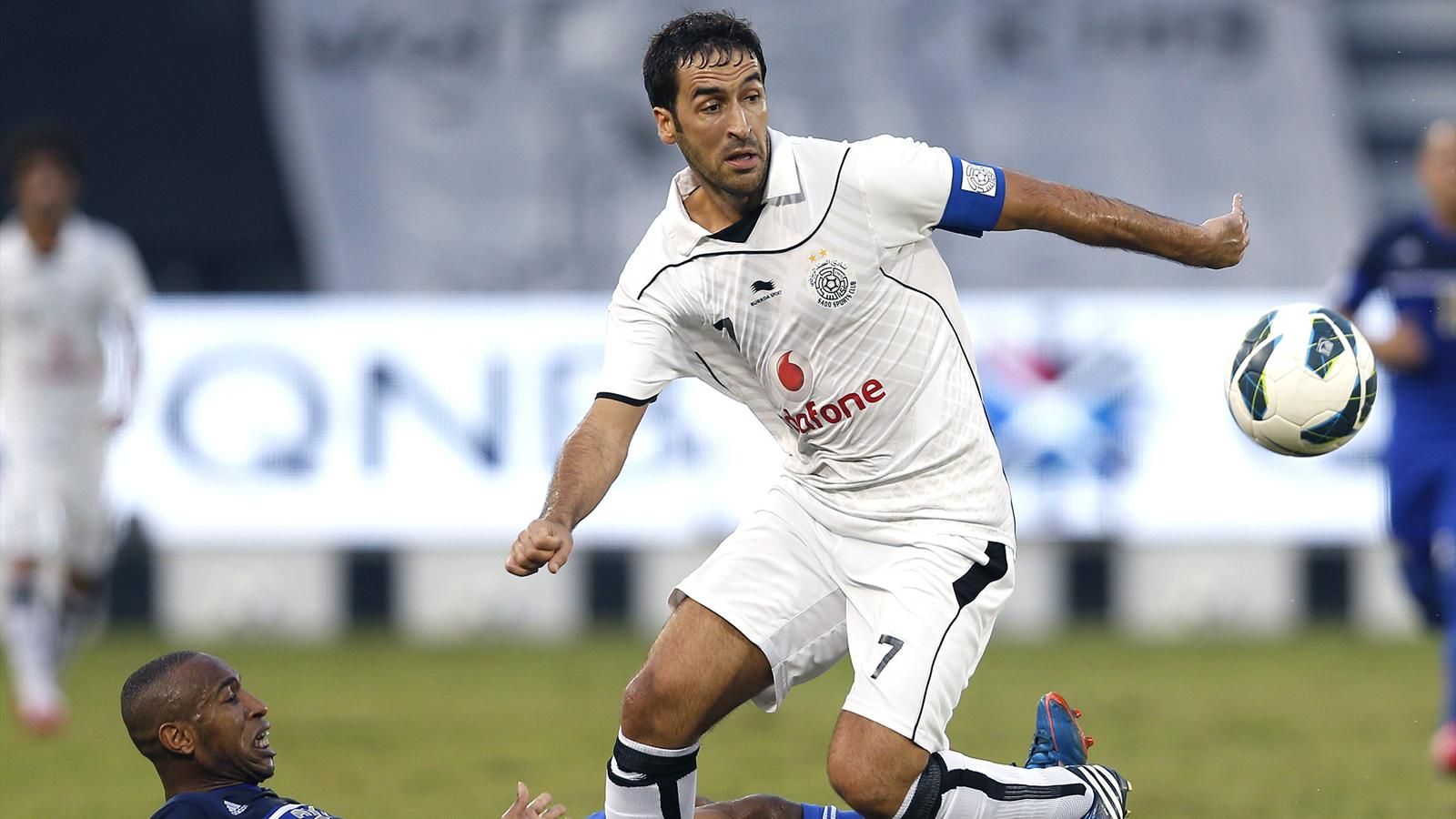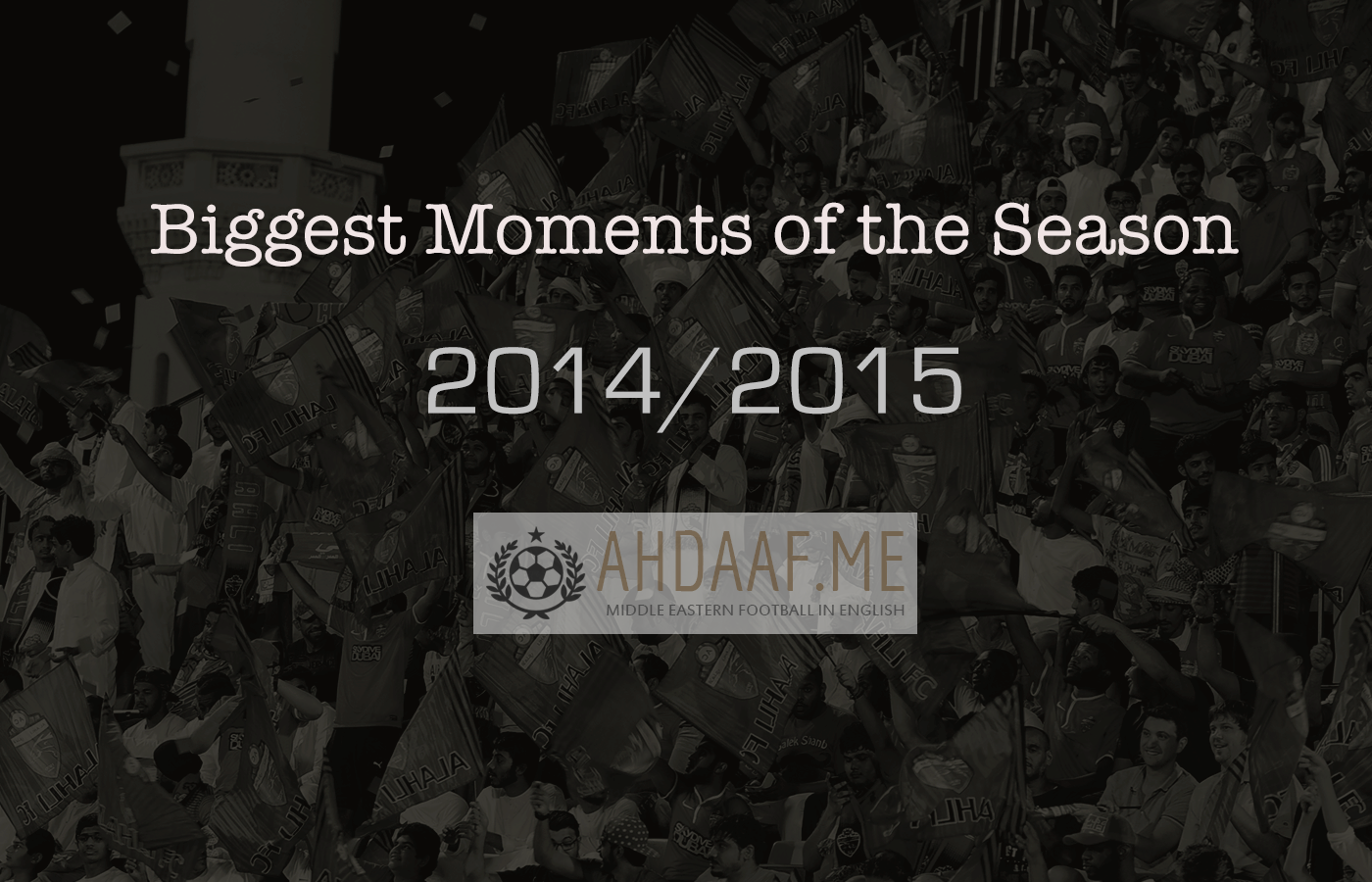-
 Ahdaaf 2018 Predictions
10 months ago
Ahdaaf 2018 Predictions
10 months ago -
 The Expatriate Question: Two paths Iraq’s Katanec can take to the 2022 World Cup
1 month ago
The Expatriate Question: Two paths Iraq’s Katanec can take to the 2022 World Cup
1 month ago -
 Iraq and Katanec’s contract: Smoke, mirrors and Iranian spies!
1 month ago
Iraq and Katanec’s contract: Smoke, mirrors and Iranian spies!
1 month ago -
 Srečko Katanec: Iraq need a man of substance
3 months ago
Srečko Katanec: Iraq need a man of substance
3 months ago
People must know their history: The rise and fall of the Iraqi elite’s football teams
“Whoever wishes to foresee the future must consult the past; for human events ever resemble those of preceding times. “ – Italian Renaissance writer Niccolò Machiavelli once penned.
His words speak true of the volatile history of Bilad Al-Rafidan or the Land between Two Rivers, a nation whose embattled and wronged people have seen turbulent struggles and bloody hardships throughout its modern day existence, a chain repeating itself. Formed from the three Ottoman vilayats of Mosul, Basra and its capital Baghdad, Iraq at first, was a British protectorate before it gained its independence as a Hashemite Kingdom. The monarchs ruled until 1958 when a coup d’état led by Brigadier Abdul-Karim Qasim and the Free Officers ushered in the New Republic. However this was followed by two further bloody revolutions which would see the Baathist Party take power for thirty-five years, as my own grandfather had predicted. In Iraq only the year and names of its leaders alter, King Faisal II, Abdul-Karim Qasim, and Saddam Hussein and today the President of the Kurdistan Regional Government (KRG) Masoud Barzani and the current Iraqi Prime Minister Haidar Al-Abbadi – but history replicates, not only in the nation’s politics but also in its football.
There have been three football teams in Iraq that risen and fallen with the fortunes of the reigning elite, in the Kingdom of Iraq, and the Republic and present-day Iraq.
A football team fit for a King – Haris Al-Maliki
In 1947, Iraq was a monarchy governed by the 12 year-old King Faisal II whose his uncle Abdullah served as regent until the young adolescent King became of age to rule, while in government was the Anglophile Nuri El-Said – who served eight terms as Prime Minister of Iraq. That same year the head of the Royal Guards Obaid Abdullah Al-Mudhayfi – who led the regiment which protected Iraq’s Royal family – formed the football team known as ‘Haris Al-Maliki’ or the Royal Guards. The organisers of the side, wanted to form a football, basketball and hockey team that would become the best in the country and they had the funds and prestige – with its royal connections and financial incentives – to sign the best footballers and sportsmen in the country to compete with the top teams, and by the early 1950s, Haris Al-Maliki were the undisputed champions of Iraq, not only in football but other sports.
Their football team won league and Army Cup titles seven years in a row – their nearest rivals – the Royal Air Force could barely compete however in 1956 the tide turned after the Royal Guards won their last piece of silverware and the following season after a defeat to the Air Force, the team were subsequently disbanded by its founder Obaid Abdullah Al-Mudhayfi. Just over twelve months later the Royal family would be killed in their overthrow in the July 14 Revolution – with Al-Mudhayfi, a prominent officer in the Iraqi Army, and a key member of the elite at the time, fleeing for Saudi Arabia. In his era, Al-Mudhayfi not only held a high position in the Iraqi Armed forces protecting the Royal family but was also the President of the Iraqi Football Association and the Iraqi Olympic Committee. His name is long forgotten, and so is the name of his famed team Haris Al-Maliki, one of the greatest football teams of its era. Everything goes back to dust even history.
Saddam’s football team – Al-Rasheed
Twenty five years later, – many years after the dust had settled and past been forgotten – the son of the Iraqi President Uday Saddam Hussein formed the Al-Rasheed Sports Club – taking over the premises of the Al-Karkh Sports Club in the affluent Mansour district of the Iraqi capital to form the club. The concept was new or so they thought, the President’s son and his brother in-law Hussein Kamil wanted to form a club which featured the best sportsmen in the country (where have we heard this before), and the club with the ability to ‘sign’ any sportsmen in the country they wanted. With its links to the Iraqi government, the ruling elite and endless amounts of cash – became the Iraqi league champions for three seasons running from 1987 and won the Arab Club Championships on three occasions – unmatched by any Arab club. There were stories of torture and imprisonments with Uday’s own methods of encouragement to get the best of his players, of course the players like the defunct Haris Al-Maliki were paid handsomely for winning however when they lost, the players would spend days in jail cells or face humiliation by having their heads shaved – some carrying a pillow onto the team bus on the way to a match knowing that there was a chance they would be sleeping in a cell if the result didn’t go their way! Once Al-Rasheed’s players were forced to draw lots to see which six players would be punished after a defeat to Uday’s rivals Al-Zawraa. They were a club Uday hated losing to, because of its administration being headed by one of his father’s prominent bodyguards, with the president’s young and belligerent son often taking bets with key figures in the regime that his side would win. Al-Rasheed became known as the football team of the ruling Baathist regime, the very same thing the general public had charged its forerunner Haris Al-Maliki of being, more than three decades earlier.
But as they rise, they must also fall and after the Al-Rasheed team returned from playing in an AFC Club Championship tie in China, the players, some signed by force from rival teams were released and allowed to return to their original clubs. Al-Rasheed were disbanded and all of its property reverted back to Al-Karkh Sports Club and they suffered a relegation to the Iraqi second division (how the mighty fall). Uday had his own troubles after he killed his father’s food taster in late 1989 – renouncing both the presidency of the Iraqi Football Association and the Iraqi Olympic Committee as he spent time in jail for the murder before he was pardoned by his father after an intervention from King Hussein of Jordan and later exiled in Switzerland to keep him out of trouble – he returned to Baghdad in early 1990 and was re-elected to his former positions at the head of Iraqi football association and the Olympic committee which he held until the US led invasion of Iraq in 2003. He would later be killed with his younger brother Qusay in a shootout with US forces in Mosul.
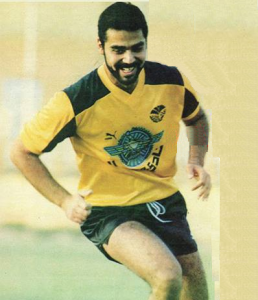
Uday Saddam Hussein, the former President of the Iraqi FA and Olympic committee in the colours of the old Al-Rasheed Sports Club
The club of the north, KRG’s Arbil
They saying goes that lightening doesn’t strike twice but in Iraq it seems as if, it strikes in threes. After the fall of Saddam Hussein’s Baathist regime, the city of Arbil became the main capital of the Kurdistan Region of Iraq with the leader of the Kurdistan Democratic Party (KDP) Masoud Barzani holding the presidency since 2005. Despite his two terms in office having ended, the monarchic leader has managed to cling on for two more years with his current term ending next month.

Arbil’s vice president and current President of the Iraqi FA Abdul-Khaliq Masoud with Ahmed Ibrahim after signing the defender in 2009.
The city’s top club was Arbil Sports Club, a middle of the table team in the Iraqi top division, a side who had never finished higher than sixth in the top flight and been relegated twice in their 35-year existence. But their fortunes and that of the emerging and burgeoning city of Arbil would change, as the region became labelled “the Other Iraq” by the western media and their supporters.
Things quickly improved for the city of Arbil, and over the space of a couple of years, with the vastly improving economic situation of the region and the comparative security to the daily car bombings and kidnappings some 350 km away in the Iraqi capital, Arbil came a popular destination for Iraq’s top footballers mainly based in Baghdad who were handed substantial contracts to sign for Hewlar (the Kurdish for Arbil). A key actor in the turn-over of some of the best players from the Iraqi national team, was moustachioed Abdul-Khaliq Masoud, known to his friends as Al-Mulla. He had held the presidency of the Arbil branch of the Iraqi FA for over two decades and after 2003, became one of the Iraq FA president Hussein Saeed’s closest officials along with Najih Humoud, and worked as treasurer and vice president of the Football Association, until he ousted both of the previous FA presidents Hussein Saeed and Najih Humoud by turning on them, gaining a majority in the cliques which governed the inner workings of the Iraqi Football Association, to be named president of the Association.
The increasing prosperity of the ancient city of Arbil – which became a sea of tower cranes after the 2003 War- and its regional significance with the KRG Parliament building sited in Arbil may have been the reason why billions of Iraqi dinars was ploughed into the main sports club, a symbol of the city’s growing political stature and perhaps an indication of the region’s future political ambitions as an independent state – with winning the Iraqi league giving a Kurdish club a window into the Asian club competitions.
With the introduction of some of the country’s best players, Arbil went from being a struggling top division club to Iraqi league champions, winning its first title in 2007 swiftly followed by two more league wins in 2008 and 2009. The Yellow Citadel – who became the first Iraqi club to sign foreign professionals to play in the Iraqi league – went onto win a record fourth title in 2012 and reached two AFC Cup finals, an exceptional feat. But late last year the Kurdistan Region, once seen as a beacon of hope after the fall of Saddam, was plunged into economic chaos after a combination of political instability and financial insecurity put the whole region in red, to the sum of $15 billion. Arbil’s main backers, the same people controlling the Barzani dominated empire, the elite hierarchy of the KRG region, were unable to keep paying the salaries of club officials or the playing staff at Arbil – with many of the players last season going unpaid for the whole season and this season the club nicknamed El-Emparator (“the Emperors”) by their fans could be forced to field a weakened squad in the Iraqi league. Empires rise and fall, and so it seems do Iraqi football clubs.
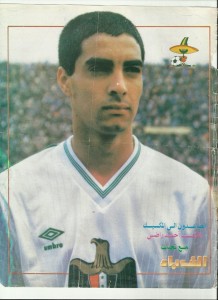
Ahmed Radhi lining up at the Al-Shaab stadium against Flamengo in 1986 after having his head shaved for losing 1-0 to Al-Zawraa in the Iraqi league
Though the names change and with it, the politics, there are deep engrained parallels with the history of the era that each of the three football teams that I have noted. Vacated in history, in each period, the rulers saw these teams as play things, an everyday hobby, their teams reached the pinnacles of their sports disciplines, they themselves received the fame and adulation, as leaders, rulers or monarchs of their time, so I go back to Machiavelli’s quote “’Whoever wishes to foresee the future must consult the past; for human events ever resemble those of preceding times. This arises from the fact that they are produced by men who ever have been, and ever shall be, animated by the same passions, and thus they necessarily have the same results.’
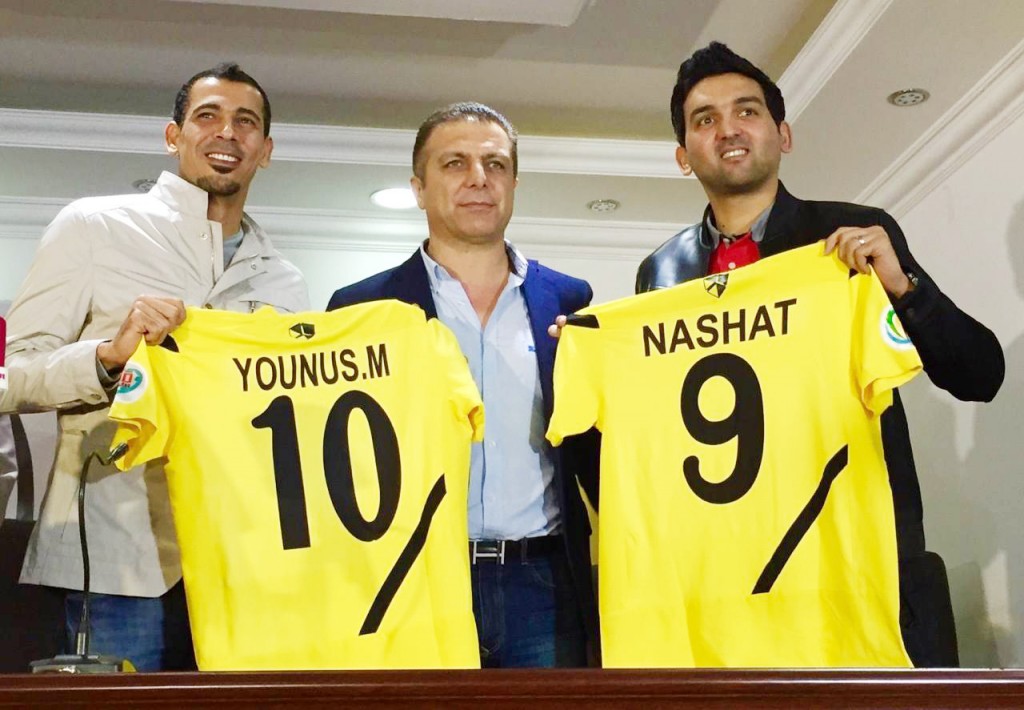
Younis Mahmoud and Nashat Akram with Arbil club president Abdullah Majeed Dazabi after signing short-term deals to play for the club in the AFC Cup earlier this year.
The men who formed Haris Al-Maliki and Al-Rasheed were driven by the same passions the Italian writer spoke of and those Iraqi teams had the same successes and determined or predetermined results and its current incarnation may witness the same fate. Spanish-born philosopher George Santayana famously wrote “Those who cannot remember the past are condemned to repeat it,” and it seems Iraqi football, its past and now its present is condemned to repeating itself, over and over. Their successors of rulers or emperors oblivious of their predecessors’ failings or mistakes. Only when people know their history…
- The Expatriate Question: Two paths Iraq’s Katanec can take to the 2022 World Cup - October 3, 2018
- Iraq and Katanec’s contract: Smoke, mirrors and Iranian spies! - September 25, 2018
- Srečko Katanec: Iraq need a man of substance - August 18, 2018
- Romário on the bench in Doha: The Brazilian Tourist at Al-Sadd - April 19, 2018
- The Disorderly General: A confused strategy of Iraq’s FA and head coach - March 15, 2018
- Lifting of FIFA’s ban could be the start of a new era for Iraq - March 13, 2018
- Younis Mahmoud attempting to alter the post-2003 status quo in Iraqi football, FIFA must monitor the Iraqi FA - March 5, 2018
- Ali Kadhim: The Iraqi goalscoring legend - January 28, 2018
- Iraq’s Mohanad Abdul-Rahim: Next stop, Bangkok United - January 4, 2018
- Hussein Ali: The Iraqi starlet winning praise at the Gulf Cup - January 2, 2018
Similar posts
-
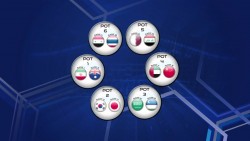 Internationals
Internationals
WCQ2018 Asia: 6 Talking Points from the Middle East
-
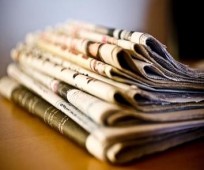 Internationals
Internationals
PRESS TALK: August 31, 2016
-
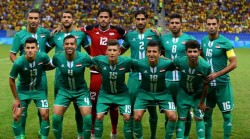 InternationalsYouth Competitions
InternationalsYouth Competitions
The world came to see Neymar but found Iraq
-
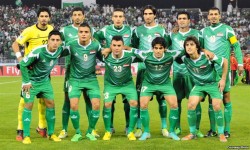 Internationals
Internationals
THE NEW IRAQ: ALL CHANGE IN TASHKENT
-
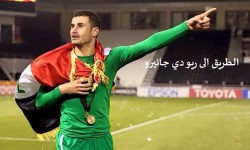 InternationalsYouth Competitions
InternationalsYouth Competitions
Ayman Hussein: Iraq’s Olympic Superhero
-
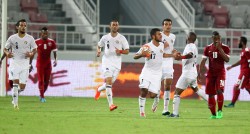 Youth Competitions
Youth Competitions
AFC U-23 CHAMPIONSHIP: PLAYERS TO WATCH | PART 2

